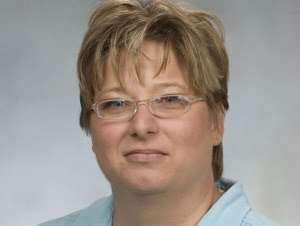
“The prison population is actually declining,” D’Angelo said. “As a nation, we have changed our sentencing policies for drug-related offenses. Individuals are still being sentenced but are serving shorter terms. And we’ve taken a harder look at who is going to prison versus who is not.”
D’Angelo, who joined the Buffalo State Criminal Justice Department in 2007, specializes in juvenile crime and violence; sentencing disparities in young offenders, and judicial decision-making. In her ongoing research and examination of the U.S. justice system, female inmates, especially mothers in prison, also have piqued D’Angelo’s interest. She noted that more than 65 percent of female prisoners have at least one child under the age of 18.
And this leads to a sad cycle of incarceration.
“These children are significantly more time likely to serve time themselves than their counterparts without a parent in prison,” she said.
Children whose mothers are in prison typically end up with another relative; about 20 percent are funneled into the foster care system. Very few live with their fathers.
“The likelihood that women in prison will have face-to-face visits with their children is extremely low due to the logistics and associated travel costs,” she said. “Incarcerated moms worry more about their children than their own safety.”
She is currently working on a research project “Promoting Parent Child Attachment,” with two other SUNY faculty members to develop a better understanding of the barriers that prevent bonding between incarcerated mothers and their children.
“Visits with the mother are key to a child’s emotional and social development, even if that mother did make mistakes,” she said. “Kids don’t stop loving their parents just because they’re in jail.”
The goal is to provide three handbooks—one for caseworkers who help incarcerated mothers, one for prison administrators and staff, and one for incarcerated mothers.
D’Angelo earned her bachelor’s degree in criminal justice from Brockport State College in 1990 and her master’s degree in criminal justice from Buffalo State in 1994 before earning a doctorate in sociology and justice studies from American University. Since joining the Buffalo State faculty in 2007, she has taught such undergraduate courses as “Correctional Process, the Juvenile Justice System, Advanced Issues in Punishment and Correction,” as well as graduate course “Correctional Strategies and Juvenile Justice.”
from BuffaloState.edu via IFTTT
All WNY is made possible thanks to coffee and sleep deprivation.
We appreciate your readership. We like money, too.

